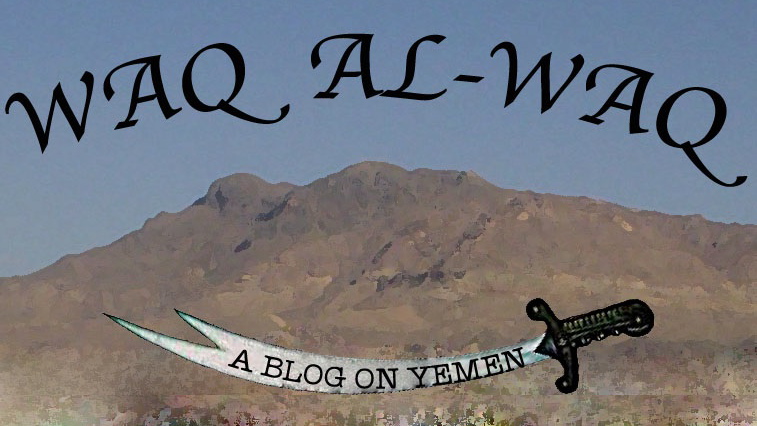Late Night Thoughts on Yemen: or what happens when nothing goes according to plan

It is late where I’m at, and a lot has happened in Yemen today.
Yesterday I tried to give a brief overview of events in Yemen, the why and how of the initial days of fighting. Today, I’m going to do something else. (For those looking for the tick-tock of the fighting, I recommend al-Masdar Online.)
The question I’ve been asked a lot, and have been asking myself is: what can the US do?
The question is natural, reflexive almost. When a crisis breaks out, people tend to look to major powers in the hope that they can somehow manage the crisis in a way that limits damage and bloodshed.
This is an illusion, but a comforting one. It lets us believe that we live in a world that we, or at least our representatives can control. When things go wrong, as they often do, this also lets us point the finger at someone, saying, you – you didn’t do enough. You should have foreseen the consequences of your action. You should have done X instead of Y.
But is this really true?
In testimony before the US Senate Committee on Foreign Relations last year I concluded my written testimony:
“There is a limit to the positive impact the US, its allies, and regional partners can have in Yemen. Much of the country’s future will conintue to remain beyond human engineering and even a near perfect strategy will still leave too much to chance.
In the absence of any easy or obvious solutions, Yemeni advisers and a surprising number of foreign experts are putting their faith in the country‟s blind ability to muddle through the multitude of challenges it will face in the near future. This belief is buoyed by intimate knowledge of the past – Yemen, they claim, has seen far worse and survived – but such an argument confuses history with analysis. And in Yemen hope, even desperate hope, is not a strategy.”
So when I ask myself what the US can do right now in Yemen, the unfortunate answer is not a lot.
The GCC plan, like it or not, is dead. No matter what the US or Saudi Arabia says, Salih isn’t going to sign it. (We can get into more of a post-mortem later, but the minute the GCC, US, and EU, let Salih get away with not signing the first time – he was never going to sign.)
And now President Barack Obama has publicly called on Salih to leave now.
Ok, but when he doesn’t, then what?
The US isn’t going to us military force in Yemen – I think everyone agrees that would be a horrible idea.
So, next up, targeted sanctions. These seemed to be quite popular in DC circles yesterday, but I was never sure if that was because people thought they would work or whether it was because they were the only move the US had? I suspect the latter.
But what happens if the US imposes sanctions on Salih and his immediate family?
Ok, it further isolates him, and may put a freeze on some of his accounts abroad but that’s about it on the plus side. On the negative side it gives Salih a pretty strong incentive to stay and fight, and fight to the end- what does he have to look forward to if he gives up?
The US has already called for him to step down, it can’t turn back around days or weeks later and say, oh we were just kidding about the whole stepping down thing.
So, then what are US options? From where I sit, not many.
Obviously ending military aid and the like – but no one who has ever been to Yemen is under the mistaken impression that if the US cuts off its $170 million or so in CT aid the guns will magically fall silent. They won’t.
There just isn’t, at least at the moment, a lot the US can do.
Two decades of mistaken US policy towards Yemen, to say nothing of the last few months is finally coming back to hurt the US – and potentially hurt it big. (Remember AQAP is winning big right in Abyan, Shabwa, and parts of Marib.)
Ignoring the country for a decade, and then spending the next decade tying US aid so closely to al-Qaeda’s presence in the country, and then funneling all that money and equipment through a single family all is going to hurt the US. Although, of course, all of the above is a result of only seeing Yemen as a CT-problem that had to be solved.
(An interesting chart – I think that is the technical term – for an aspiring grad student would be to overlay US aid to Yemen with al-Qaeda in the country over the past 20 years)
These mistakes can’t simply be wished away, there are consequences, sometimes severe ones, for mistakes in policy – and the US doesn’t get unlimited chances to do it right. Over the past three months the US got a single chance – the one thing it could control in a world of uncertainty – and it decided to put its money on the GCC and its deeply flawed plan.
By taking a back seat to the GCC plan, the US squandered away its leverage and influence when it still could have made a difference to Salih’s thinking. Now, he isn’t going to sign the plan and he’s involved in a major fight with the al-Ahmar family.
Anyone notice how in Salih’s remarks, he keeps referring to them as the “sons of al-Ahmar,” this is an intentional swipe at the 10 brothers, and particularly Sadiq. Salih is basically questioning their manhood and their status, implying that they would be nothing if it weren’t for their father, Abdullah, who died in late 2007. Sadiq is the shaykh mashaykh, the head, of the very powerful Hashid tribal confederation and here Salih is referring to him as a boy. This matters a lot in Yemen.
Today the Suhayl Television station, financed by Hamid al-Ahmar, was shelled by forces loyal to President Salih and went off the air – although it is still tweeting. There are also rumors that Sadiq al-Ahmar’s house has been overrun by forces loyal to Salih, as Sadiq and Hamid left Sanaa. Several other brothers are in Amran, in the family’s traditional tribal territory. If the rumors are true – and at this point they are still unconfirmed this is not the end, far from it.
The tribes will likely regroup. And that brings us to the situation in Sanaa. The sad fact of the matter is that the three sides with guns, men, and money – Salih, The al-Ahmar family, and Ali Muhsin al-Ahmar (the defected general and head of the 1st Armored Division) all suffer from a severe lack of trust among the peaceful protesters in the Square of Change, who are caught in the middle of this mess.
My suspicion is that Salih’s planning is to defeat the al-Ahmar family decisively – his troops got beat early – hope to maintain Ali Muhsin al-Ahmar’s neutrality, and then when the dust settles call for new elections.
What would happen in such a scenario?
Could the US really walk back its call for Salih to step down if he or a family member won such a presidential race? Would it want to? Think what Yemen would look like, certainly not what it looks like now.
What if the al-Ahmar family defeated Salih, and if it goes on long enough at its current trajectory they very well might. Does the US want to trade one family’s rule in Yemen for another? The protesters certainly don’t want to, many of them distrust the family.
What can be done: at the moment, not much. Hopefully that will change in the future.
The UN Secretary General called for an immediate cease fire. Probably more out of habit than the hope that it will make any difference on the ground. Yemen is in for a rough road.





